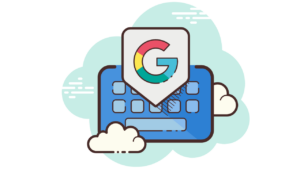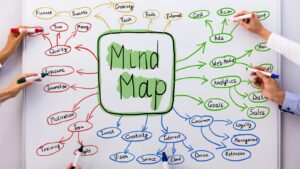40 + Essential Resources for Your Teaching Library
Since I can remember, I’ve been obsessed with building my teaching library. A library can be many things — a place of refuge, a research tool, a personal monument to knowledge and the aspiration to learn more about the world. Many English language teachers have built their own professional libraries to help them improve their skills and augment their classroom resources. Indeed, there are many great places you can look for ideas to start building your own professional library. TESOL Zone has a top 10 list of books for language teachers, Goodreads (my favorite reading social network site) has its own list of books, and there are other lists of top books for English language instructors here, here, and here.
However, as experience has taught me, while books can be a blessing, for the itinerant English language instructor — often moving from country to country — they can also be a burden. For this reason, over the last few years I’ve been giving away my physical books and replacing them with digital substitutes. Whether you’re someone looking to go completely digital like me, or whether you’re just looking for digital resources to supplement your physical library, I’ve assembled a list of websites that can be helpful in getting you started building your digital library.
Online Journals, Books, and Magazines
EFL Magazine. This magazine has great ideas on how to improve your teaching skills, from the use of storytelling in the classroom to how to encourage students to speak up in class. Articles also focus on ways to become a better professional and various ways to manage the business side of English language instruction. One article in particular that stands out is Karl Millsom’s Developing Learner Autonomy.
English Teaching Forum. This quarterly online journal is produced by the U.S. State Department and offers an abundance of practical articles on English language teaching. What I appreciate most about this journal is that even theoretical articles usually offer practical teaching examples and photocopiable worksheets. My favorite article from the journal is Alan McLean’s Destroying the Teacher: The Need for Learner-Centered Teaching, a fantastic article that makes the case for decreasing teacher talk time and the use of active learning techniques in the classroom.
Creativity in the English Language Classroom. This is a free book provided by the British Council, edited by Alan Maley and Nik Peachey. It has great articles on how to make your classroom fun and interactive. Best of all, the book is entirely free to download.
TESOL. If you have a membership for the organization TESOL, then for an additional fee of between 45 and 89 dollars, you can gain access to their online journals, which includes TESOL Journal and TESOL Quarterly. TESOL Press also has many digital books available for purchase. However, even if you don’t want to pay for digital books or subscriptions, you can still access useful scholarly articles for free via the organization’s interest group newsletters. These newsletters organize scholars and professionals around various topics that include Computer Assisted Language Learning, English for Specific Purposes, and higher education.
Other Academic Journals. There are many other useful internet journals that provide scholarly and practical articles. Most of them are open access and entirely free. Some of these journals include Internet TESL Journal, Asian EFL Journal, and The Electronic Journal for English as a Second Language. There are more open access journals on the web and I encourage you to cultivate a small group of favorites to keep your mind fresh and inspired. An exhaustive list of journals can be found here.
Applications, Activities, and Games
Quizlet. Quizlet is an application that allows instructors to create digital flashcards. Once a digital flashcard set is created, the instructor can use it as a game or can automatically generate quizzes (both online or in pdf). EFL Magazine recently published an article on effective ways to use Quizlet, which can be read here.
Other Classroom Apps. Classtools has various tools to help instructors create content. My favorite of the functions is the Arcade Generator ,which turns quizzes into classic arcade games. Kahoot is another application that I have recently started experimenting with in order to make games for my kids and adult classes. The application allows you to create games and quizzes that students can play on their smartphone or tablet. Socrative is another education app that allows instructors to monitor how students are doing on various concepts through quiz and game functions.
Activities and Materials. There are many websites on the web with ready-made activities and programs to help you generate content quickly. A website called Tools for Educators has a number of tools to help you create worksheets, board games, and other materials. Randall’s ESL Cyber Listening Lab has extensive listening lab activities for students. iSL Collective is a website that allows instructors to upload and share various teaching materials. News in Levels is a website that has current news graded for different levels with key terms defined for students. In addition to these websites, Super Simple Learning has a number of songs, videos, and downloadable materials appropriate for kids.
Game Websites. There are several websites that have pre-made games for English language learners. These games are great if you have a smartboard in your class. Originally, I used these games for kids’ classes, but because of their popularity, I have now incorporated them into adult classes as well. Two of my favorite websites are ESL Games Plus and ESL Games World. Many of the games on these websites are organized like quiz or spin the wheel games. In addition to digital games, they also provide downloadable word and powerpoint templates to make your own games. I also like the website ESL Games and its collection of printable conversation cards. BoggleWorldESL is a website with a fantastic collection of customizable and printable ESL board games.
Online References
Grammar References. Every instructor should have a handy desk reference, such as the Betty Azar grammar book series or Grammar in Use. However, there are some online substitutes you can use if you don’t have space in your office for a handy grammar reference. English Page has a nice layout that is also visually appealing, complete with links to practice exercises for students. English Grammar 101 and Ego4u are similar websites with references and practice exercises, with slightly different formats. Finally, there is a useful companion website to the Betty Azar grammar book series. Though the website is not comprehensive, it does have useful powerpoint supplements to the book and grammar worksheets that teachers have uploaded. While these books cannot replace the sheer handiness of having a desk reference, they can be lifesavers for the itinerant English instructor.
Dictionary. In addition to these grammar resources, I also like to have a learner’s dictionary in my favorites file. My dictionary of choice has been Merriam-Webster’s Learner’s Dictionary because of its clear definitions and audio files for pronunciation.
Other Resources
Youtube Channels. I would be remiss not to mention the many great Youtube channels that exist for English language learning. My preference has been to use non-English language learning videos in the classroom, such as movie clips with subtitles and songs with lyrics. However, there are many great Youtube channels that offer miniature lessons. The British Council’s Learn English channel has a number of great videos, as does English Class 101. From these two channels it is easy to browse more channels. Fluency MC is a website with various English raps that one of my colleagues has recently introduced me to — very cool!
Building Your Humanism. I’ve always felt that the best English language teaching comes from a deep desire to empathize, learn, and improve. For this reason, I think that there are other online resources that instructors should consider. TED Talks is an important part of my English teaching digital library. The website helps me think of topics for advanced learners and helps me to question my teaching techniques. When I have a few minutes at work I also like to watch Animated Coffee Breaks to improve my knowledge of popular books.
Music and Sounds. I like to listen to ambient music while I work. Youtube has a number of ambient and alpha wave mixes that are nice to listen to when you want to get deep into a project. I like also like to listen to the sound of rain while I work.
Hopefully, this article has given you a foundation to build your own online English teaching library. I am sure there are many websites that I have missed and the opportunity to expand your teaching digital library will only increase in the future. If there are any major websites I’ve missed, by all means suggest them in the comment section.




